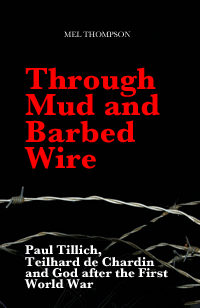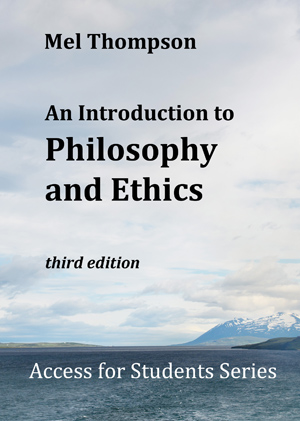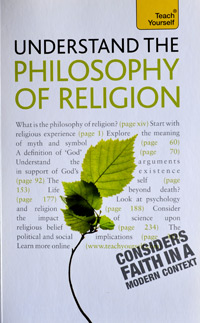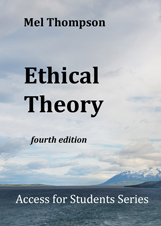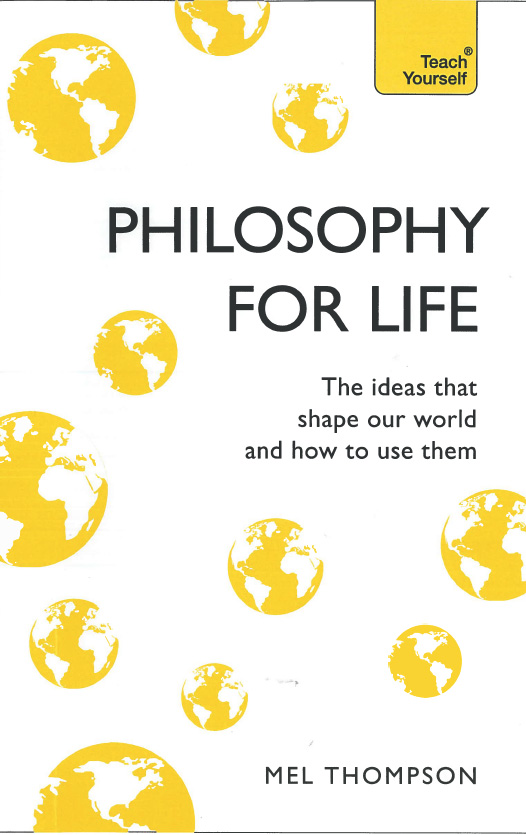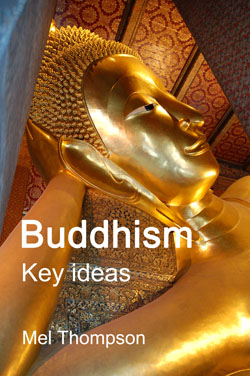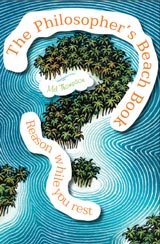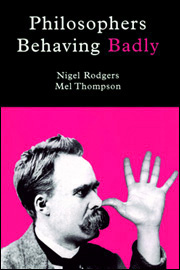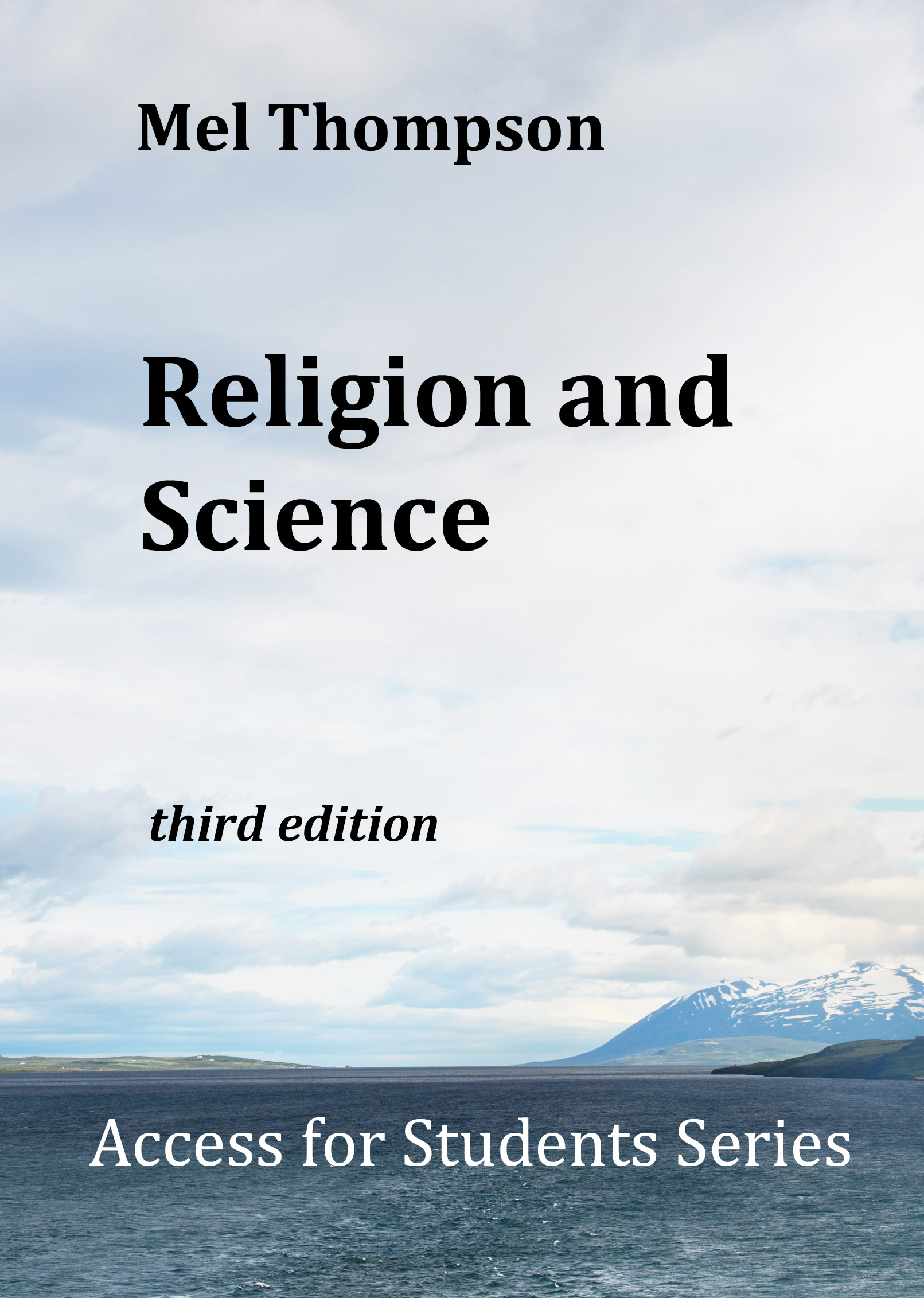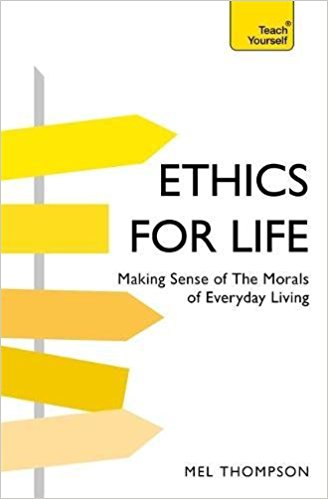The Problem of Evil
[These notes combine material from my published books with notes provided for students during lectures. You may freely use them for your personal study and copy them for the use of other students, but they should not be copied or distrubuted commercially. Copyright remains with the author.]
Contents
Introduction
Psychological impact
The logical approach…
Natural and Moral evil
Philosophy or theology?
Irenaeus
Augustine
Key differences
The Free Will Defence
Marx and compensation
The Goodness of God?
Introduction
The Problem of Evil is the greatest challenge to belief in an all-loving, omnipotent God. As such, it is a key topic for the Philosophy of Religion. In revising it, it is important that you have a clear understanding of the following:
- The logic of the ‘problem’
- The way it relates to other topics, including the ‘Design Argument’, life after death and the nature of God
- Irenaeus’ answer to the problem
- The two answers suggested by Augustine
- The key differences between Augustine and Irenaeus.
In its simplest form, the problem may be set out like this:
- God is all-knowing, all-powerful, all-loving and the creator of everything
- Suffering exists in the world
Therefore
- God knows that there is evil (if he is all-knowing)
- God could prevent evil (if he is all-loving and all-powerful)
But
- He allows it to continue
Therefore
- Either he wishes evil to continue (in which case he cannot be all-loving)
- Or he cannot eliminate evil (in which case he is not all-powerful)
Psychological impact
In a moment we shall look at the logic of this argument, but for now let us think about its psychological impact…
Imagine that you are taken prisoner – you are totally at the mercy of the person who has captured you, you see all around you other prisoners being tortured and killed. Some behave badly and obviously deserve punishment. Others appear to be kind and honest – and yet they too end up suffering in various ways. You realise that everyone ends up dead. You also know that there is no means of escape – no way of organising your life to be free from the person who has put you in this prison.
This view is likely to make you cynical about any claim that the person who has put you here is loving and personally concerned for your welfare. It may also make you cynical about the value of the life you lead – you may see kind and loving things happening around you; you may have temporary pleasure; but in the end you sense that it is all mockery – for you are never going to be able to escape.
This feeling of being in a closed world, where everything is controlled, and where you know your future is limited and controlled by a force outside yourself – whatever happens you are helpless to influence it – is a nightmare.
But is that nightmare also true of the world in general? Is our personal happiness or unhappiness, our suffering and our death, controlled by a universal force called ‘God,’ from whose tyranny we can never escape? Or, in spite of everything, is the world the sort of place that a loving creator might organise and control?
The logical approach…
From the logical point of view there are various alternatives:
Either change your definition of God, so that he does not appear to be omnipotent – in other words, that he remains a loving and perhaps a suffering God, one who sympathises with the sufferings of this world, but who cannot prevent them. Such a God is not omnipotent (able to do anything). The problem is that this view cannot be squared with the idea of God as creator or the world.
Alternatively, you have to consider re-defining what you mean by ‘loving’ so that God’s love can accommodate his choice to allow suffering and evil. This could be along the ‘tough love’ approach, where hard choices are made in order to secure long-term benefit.
Otherwise, you need to find a reason why a loving God should choose to allow suffering and evil. This kind of argument is called a ‘theodicy’ – meaning an attempt to justify God. We shall look at the theodicies of Irenaeus and Augustine a little later.
But notice first of all just how powerful the fact of suffering is, and the way it challenges belief in the existence of God.
In Book XI of his Dialogues... David Hume turns the argument from design on its head, and presents a world that is far from a comfortable, reassuringly designed machine:
Look round this universe. What an immense profusion of beings animated and organized, sensible and active! You admire this prodigious variety and fecundity. But inspect a little more narrowly these living existences, the only beings worth regarding. How hostile and destructive to each other! How insufficient all of them for their own happiness! How contemptible or odious to the spectator! The whole presents nothing but the idea of a blind nature, impregnated by a great vivifying principle, and pouring forth from her lap, without discernment or parental care, her maimed and abortive children!
Human beings are fragile and short-lived. They are liable to accidents and diseases, and those who escape these still have to face the inevitable prospect of old age and death. The world is not a safe place in which to live, but it is the only place in which to live.
If you claim that God is the creator and designer of the universe, you need to square that with an account of what the universe is actually like.
Natural and Moral evil
It helps to distinguish between two kinds of evil:
Natural evil – disease, earthquakes and the like. These are ‘natural’ phenomena and define the kind of world we live in. Human beings are not generally seen as the cause of this kind of evil, except – and this is an important qualification today – in so far as humankind is thought to have interfered with or disrupted the natural order. The contribution of human activity to global warming would be a key example of this, as would the over use of antibiotics in rendering people more vulnerable to new strains of disease.
Moral evil – human actions that lead to suffering or that are considered evil in themselves. It can be argued that moral evil is simply down to human choices and behaviour, and therefore God cannot be blamed for it. However, that can be challenged, on the grounds that an all-knowing and all-powerful God should have been able to create people in such a way that they always chose to do what is right. He is therefore indirectly responsible for moral evil and indeed. If he is genuinely omnipotent, he should be able to intervene and stop people who are about to commit evil.
Clearly, natural evil is therefore the more fundamental problem for, even if everyone behaved perfectly, it would still challenge the idea of a loving designer-god. Disease and death do not depend upon moral wickedness, but are the result of the way the world is made. Those who take the biblical stories as history might be tempted to argue that suffering and death entered the world as a result of the sin of Adam, but this is not presented as a logical argument and is not widely taken into account in the consideration of the problem of evil. It also begs the question why a loving God should create human beings in such a way that they are liable to moral evil.
However, if there were no natural evil - that is, if everything were created perfect - then it could be argued that there would be no moral evil either, since moral evil results from an inadequate or defective understanding of self and world. The murderer is not a perfect being who just happens to choose to kill an innocent person, but a human being who, because of his or her imperfections and/or the imperfections of at least one other person, chooses to kill.
Therefore 'natural' or 'metaphysical' evil is the greater problem for theism. If suffering results from an act of deliberate wickedness by a human individual, it is logical to blame that individual for the suffering, but there is a more fundamental question to be asked: Why is the world such that people can choose to perform deliberate acts of wickedness?
Philosophy or theology?
There is no escaping the key argument that a world in which there is suffering and evil does not seem compatible with the idea of a loving and omnipotent God. For those who believe that there is a God, suffering and evil therefore need to be explained as part of his intention for the world. In other words, suffering and evil have to find a place within in an overall scheme which can still be seen as the intention of an all-powerful and loving God.
Here the problem shifts from a philosophical one which considers suffering and evil as one factor in the debate about whether or not God exists, to a theological one in which the experience of evil needs to be integrated with existing belief in God.
Theology – which literally means ‘the study of God’ – is done from within a religious perspective. In other words, it starts from the assumption that there is a god, and that he has the qualities that religion ascribes to him, and then tries to square that with the facts of life as they are experienced. Its task in theodicy – showing that God is just.
The Philosophy of Religion is therefore wider in its scope. But notice that the study of religion really requires both the philosophy of religion and theology. In order to appreciate why a belief is held, you need to empathise with the believer, to appreciate how he or she sees the world and what the word ‘God’ means for them. That involves looking at theological arguments – those conducted from within the circle of believers. If that theological element is neglected, conclusions reached within the philosophy of religion may be logically sound but irrelevant as far as any dialogue with believers is concerned.
The first theological answer - Irenaeus
So let us look at the main answers that have been given to this problem:
There are two particularly well-known approaches to this problem, the Irenaean and the Augustinian. These were outlined by John Hick in his book Evil and the God of Love. The first, from Irenaeus, argues that God permits evil for a good purpose. The second, from Augustine, claims that evil and suffering are not God’s responsibility, and that he is therefore perfectly justified in allowing them to continue. Augustine also argues that evil is not a separate force in itself, but merely lack of goodness. Neither argument attempts to take the other two possible ways out of the problem – namely that either suffering is not real, or that God does not exist.
The Irenaean approach is named after Irenaeus (c130-c202), Bishop of Lyons. It does not deny that suffering and evil exist, or that they are permitted to exist by God. Rather, it seeks to show that God chose to allow these things to exist in the world in order to bring about a greater good - human freedom and the ability of human beings to have a relationship with God.
This approach admits that human life is imperfect but, having been made in the image of God, men and women should have the opportunity to grow and develop into what God intended them to be. As they encounter the sufferings of life, people have an opportunity to grow and to learn. Without the existence of both good and evil, that would be impossible:
How, if we had no knowledge of the contrary, could we have had instruction in that which is good? ... For just as the tongue receives experiences of sweet and bitter by means of tasting, and the eye discriminates between black and white by means of vision, and the ear recognises the distinctions of sounds by hearing; so also does the mind, receiving through the experience of both the knowledge of what is good, become the more tenacious in its preservation, by acting in obedience to God... But if any one do shun the knowledge of both kinds of things, and the twofold perception of knowledge, he unaware divests himself of the character of a human being.
[Irenaeus Against Heresies iv. xxxix.1 quoted in Hick p. 220; Fontana, 1968]
John Hick's own approach to the problem of evil follows from this. He sees evil as something to be tackled and overcome, but with the hope that, ultimately, it will be seen as part of an overall divine plan. In this sense, suffering is a necessary evil, without which there can be no spiritual growth:
A world without problems, difficulties, perils, and hardships would be morally static. For moral and spiritual growth comes through response to challenges; and in a paradise there would be no challenges. (op cit p372)
Hick describes the world as 'a vale of soul making' - an environment within which people can grow.
Notice that belief in some sort of life beyond death is important for this approach. The world may give people an opportunity to grow - but why should they bother to do so? Clearly, they will be motivated only if present hardships can be justified in terms of something better for which this life is a preparation.
If belief in God and life beyond death are removed, it might still be possible to say something like this:
- When we consider life, we cannot avoid acknowledging that human beings are fragile and fallible, liable to practice cruelty as well as kindness, liable also to seek goals that are limited and which may cause them suffering. People may seek excitement through driving dangerously fast or taking drugs; some will die as a result. Relationships may fail, and hatred between people may fester. That is the sort of world we live in.
- The fact that we call some things good and others evil shows that we are able to stand back from these realities and interpret them in terms of an overall view of human life and its place in the universe.
- Whether we like it or not, we therefore find ourselves in the sort of world in which we are forced to be creative in personal terms - we have to make choices and live with the results.
- A person who acknowledges personal responsibility, who reflects on the consequences of the choices that he or she makes, is already using the world as 'a vale of self making' (to remove the rather loaded term 'soul'). That is what intelligent life is about.
- We don't get a choice in the matter - we cannot take our world back and exchange it for another! We either life creatively, or we complain at the fundamental injustice of a world that we naively had assumed was fashioned solely for our benefit.
St Augustine (354-430)
Augustine came to the problem from two different perspectives, one philosophical, the other theological, based on the Bible.
In his philosophical approach to the problem, Augustine argued that evil was not a separate force over and above goodness. Rather, to call something evil was simply a way of saying that it lacked goodness (evil as a ‘privation of good’ – privatio boni – is the usual way of expressing this). The world is full of finite, limited things. Their limitations prevent them from being able to express their own natures completely. Therefore they ‘fall short’ of what they were designed to be, and hence participate in evil.
To expect that a limited, finite creature can live forever and never suffer is simply to misunderstand what it is to be a limited creature. The world does not belong to us, we cannot determine what shall happen, but are always limited by factors outside ourselves over which we have no control. That is the import of Augustine’s argument that evil is only a limitation of good, rather than a force in itself. And there is backing for that position from unexpected quarters – for it is in some ways like the teaching of the Buddha – that unsatisfactoriness is not something imposed on us for punishment, or somehow unfair, it is just the way the world is.
But this does not let God off the hook. Evil may be a lack of goodness, but why is there a lack of goodness? If God were an all-powerful creator, could he not have organised the world differently?
His theological approach was to put the blame for evil on humankind, rather than on God. Augustine pointed to the ‘fall’ of Adam and Eve in the Garden of Evil, and to the idea that all subsequent humanity are descended from them and therefore share in their sin and fall (through what is termed ‘original sin’). Thus, moral evil (evil done through human choice) could be blamed on humankind, rather than God.
But what of natural suffering, unrelated to moral evil? For Augustine, evil first came into the world through the 'fall' of the angels. In books XI and XII of his City of God, he argues that all angels were created perfect, but that some received less grace than others, and were able to 'fall'. This fall is then repeated in human terms in the Garden of Eden, after being tempted by satan (himself the chief of the fallen angels), eating the apple, recognizing their nakedness and being expelled from the garden, all subsequent humankind inherits that fault and becomes imperfect.
Evil and suffering are therefore either sin (if they are moral) or the punishment for sin (the world is the way it is because of our fall from grace, and that of the angels). In other words, Augustine is saying, in effect, that suffering and evil are a punishment from God, in that they are the result of human and non-human disobedience. Only God will judge how we have responded to that suffering, and will reward or punish us after this life on the basis of how we respond to it, sending some to hell and others to heaven.
In other words, there is no escape from the control of God – for he is not only justified in allowing present suffering, but will also choose to punish some people in an afterlife for the way in which they have responded to it. And that is the heart of the Problem of Evil, and it is why many thinkers have come to the conclusion that such a god, if he were to exist, would be unworthy of worship. Those who continue to believe in the existence of God in the face of evil, often do so in spite of Augustine’s argument, and regard the whole thing as a mystery.
Some key differences between Irenaeus and Augustine:
- Irenaeus makes God responsible for evil, while Augustine’s theological argument blames it on the ‘Fall’ of angels and human beings.
- Irenaeus allows freedom in order that human beings can grow through moral choice, while Augustine seen human free-will as responsible for the ‘Fall.’
- Irenaeus sees all people as eventually being prepared for heaven, while Augustine sees God judging people, who are to go either to heaven or to hell.
- Irenaeus sees evil as performing a positive role in God’s purposes, whereas Augustine sees it as sin or punishment for sin.
- Irenaeus sees suffering and evil as real in themselves, while Augustine (in his philosophical argument) sees them only as a privation (or ‘lack’) of good.
The Free Will defence
Might it not have been possible for God to have created a world in which there was no moral evil, because everyone freely chose to do what was right? If such a world were a logical possibility, then God stands accused of not having made a possible world in which there was no moral evil.
God's position is defended by what is generally called 'the free will defence'. It runs like this:
- If you are to be free to choose to do good, then it must be possible for you to choose to do evil.
- If the world were to be such that moral evil were made impossible, then it makes no sense to speak of having a free moral choice.
- BUT having free will is an essential condition of all moral life.
- THEREFORE there needs to be the possibility of moral evil in order for people to have free will and to live morally.
This argument has been presented very starkly by Swinburne. He points out that, for a moral choice to be real, you need depravity, in other words, you need to want what is wrong and then decide to reject it. But he then makes an important distinction between the possibility of evil and the fact of evil. All that is necessary for free-will is the possibility of choosing to do evil, not actually choosing to do it.
One possible way of countering this is to claim that God, if he is all-powerful, should be able to make people freely choose what is good. Both alternatives are there, but the evil one will never be taken. But is that freedom?
The implication of the 'free will defence' (and, indeed, the Irenaean approach that lies behind it) is that it is better to have a world in which people are free to choose evil, rather than a world in which they are not free at all. Human freedom is the greater good, for the sake of which we have to cope with mass murder, abuse of children, torture and the like. The implication is that an all-knowing God weighed the evil of all these horrendous things against the benefit of human freedom, and chose freedom. Can that be justified?
Marx and compensation
To appreciate why Karl Marx (1818-83) criticized religion, it is necessary to grasp his overall view of social change. He argued that, because human survival depends on the supply of food and other goods, the production and distribution of goods is the key to understanding society and how it changes. From the philosopher Hegel, he took the idea that change comes as a result of a ‘dialectic’, in which one thing or situation (a thesis) produces an opposite reaction (its antithesis) and finally the two are resolved in a synthesis. This process then starts over again, and so on. Hegel saw society developing in this way, and as moving in a direction that gave progressively more expression to what he called the Absolute Spirit. Some followers of Hegel, however, (generally called ‘left-wing’ Hegelians) saw the process of change as being within society itself, and not as an expression of an overall power or Spirit.
Marx took from Hegel the idea of a development in the form of a dialectic, and saw it as describing the inevitable march forward of society. But, since Marx held that material goods were at the basis of society, the theory he developed is called ‘dialectical materialism’. Central to this is the idea that there is conflict between the ruling classes who hold the wealth and control the means of production, and the working class who sell their labour, and are largely alienated from the results of the work they do. His aim was that the working class should rise up and take charge of the means of production, thus putting an end to their oppression and establishing a classless society.
His main criticism of religion was that, in the face of real oppression on earth, it offered spiritual blessings in heaven. People would therefore put up with their present suffering in the hope of a spiritual reward – using it like a drug to ease the pain of their situation:
‘Religion is the sigh of the oppressed creature, the heart of a heartless world, the soul of the soulless environment. It is the opium of the people.
‘The people cannot be really happy until it has been deprived of illusory happiness by the abolition of religion. The demand that the people should shake itself free of illusion as to its own condition is the demand that it should abandon a condition which needs illusion.’
(from the Introduction to the Critique of the Hegelian Philosophy of Right)
Marx believed that religion worked to the advantage of the ruling classes. However, once working people united and took responsibility for their own welfare, overthrowing the existing class structure and removing the causes of oppression, religion would no longer be needed and would therefore wither away. Hence, the abolition of religion was a necessary condition for human improvement.
Marx makes the assumption that reality is better than fantasy. In other words, if you want things to improve, the first step is to shed all your illusions about them, and therefore tackle them for yourself.
That may not be true. After all, faced with the honest truth about their health, their finances or their failure to relate to the opposite sex, some people go into decline and despair. Sometimes it may indeed be kinder to leave people with their fantasies. Consider someone who has unrealistic dreams of achieving greatness (as a scientist, musician or writer, for example). Is it better for them to strive to improve their skills, even if their chance of fame and fortune is slight? Or is it better to tell them that they are hopeless, and save them the effort of finding it out for themselves?
I’ll leave you do decide that one – but it is not immediately obvious. Most people need to have some kind of hope to keep them going. It is factually the case that everything we do will eventually be destroyed, that we and all we love will end up dead and gone, the planet itself is limited and will eventually be destroyed. Does a constant reminder of that fate inevitably lead us to shed unrealistic dreams and start to deal with improving our own circumstances? Not necessarily.
The second thing Marx assumes is that life after death is a fantasy rather than a reality. If you actually believe that you will be compensated by God in another life for all the suffering you experience here, then it might indeed be worth it. After all, you are only this earth for a very short period of time. If, by bearing its sufferings without complaining, you will be entitled to an infinite length of time in heaven, that does not seem to be a bad option – IF you can believe it, of course.
The problem of evil is closely related to the belief in life after death….
Here’s an option…
Either:
Faced with the reality of suffering in the world, we seek a rational explanation for why it was allowed in the first place – that is the tradional ‘problem of evil’
Or:
Faced with the reality of suffering in the world , we look for compensation for what we perceive as injuctice.
But here is the catch – if the first of these works, the second is redundant. In other words, if we really do believe that there is a good reason for suffering in this life, we will not expect to be compensated in any future life; this life will be fine, just as it is.
All in all, the problem of evil and the issue of life after death leads us to one of two conclusions – either both are totally in the hand of God, and whatever link there may be between the two is entirely up to him (in which case life after death becomes a factor within the problem of evil calculus).
Or
Marx was right, and the whole idea of compensation for the evils of this world is something of a con-trick imposed on us by Western religions. It is like being sold a life insurance – we do not know whether the company will really pay out in our own case, because it will not be obliged to do so until after we are dead and therefore not there to challenge it.
Whatever, there is a danger that ‘life after death’ will simply be used as an excuse for avoiding the problem of evil in this life here and now – and that, of course, is the force of Marx’ argument.
The goodness of God?
Notice that the problem of evil, as it has been explored so far, assumes that we have a knowledge of good and evil that is independent of any knowledge of God. If that were not the case, then we would have no reason to challenge the goodness of God.
Let us put this in philosophical terms. An analytic statement is one in which its truth can be known simply by defining the terms. 'A triangle has three sides.' is analytic; you don't have to examine triangles to show that it is true. A synthetic statement is one that can be shown to be true or false on the basis of evidence. 'The cat is sitting on the mat,' can be affirmed or denied only by looking.
Now the question to be considered is this: is the statement 'God is good' analytic or synthetic? If it is analytic, anything God does (or allows to be done) is good by definition. If he allows the torture of children, then - within the larger scheme of things - that must be good.
This presents an extreme challenge for the believer… What would it take to make you stop believing in the existence of God? What amount of suffering and evil is compatible with a loving God? If the answer is that no amount of suffering will shake your faith, then the idea of saying that God is loving, in any literal sense of the word, is nonsense. Because, unless you can specify what would prove your statement wrong, then it is effectively meaningless. That was the sort of argument put forward by the Logical Positivists early in the 20th century, a narrow interpretation of meaning that has long gone out of favour. Nevertheless, it is still relevant here. Unless you can specify what would count against God being ‘good’ then the claim cannot in any sense be regarded as factual, merely as an expression of one’s hope, perhaps, or irrational conviction.
This is related to the Divine Command Theory in ethics, and to the Euthryphro dilemma.
See also the notes on ‘The Goodness of God within the Judaeo-Christian tradition.
© Mel Thompson, 2015


